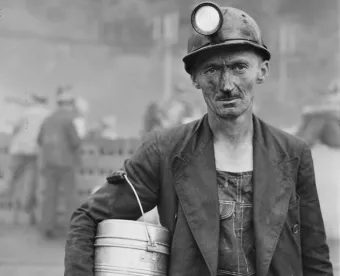The Mine Safety and Health Administration has rolled out two initiatives: a proposed rule increasing requirements for workplace examinations that, MSHA says, is aimed at curbing injuries, illnesses, and fatalities among Metal/Non-Metal (M/NM) miners, and a Request For Information (RFI) on approaches to reduce the potential for adverse health effects from exposure to diesel exhaust in miners who work underground.
Under the M/NM initiative, MSHA proposes to change identical standards regarding workplace examinations under 30 CFR Part 56/57.18002. At present, a competent person must conduct a workplace examination to look for adverse safety and health conditions at least once per shift. Corrective action must be initiated promptly and a record kept of the examination. Under MSHA regulations, a competent person is anyone having abilities and experience qualifying that person to perform an assigned duty.
“The existing standards do not address the contents of the examination record, do not require mine operators to promptly notify miners when adverse conditions are found, and do not require operators to make the examination records available to miners’ representatives,” MSHA said in a press release.
The proposal would amend the standards to specify that the examination be performed by a competent person before the shift begins. It also would require this individual to prepare a record of the examination before the shift ends, and then sign and date the form. The record must include where the examination was conducted and a description of each condition that may adversely affect miners’ safety and health. The operator must inform miners promptly of any adverse conditions in their area and undertake corrective action without undue delay. The record also must identify any corrective actions taken and the date they were taken, along with the identity of the person taking the corrective action and the date the record of corrective action was prepared. Finally, the operator would be required to make the examination records available to miners’ representatives.
MSHA noted that 122 M/NM miners died over a nearly six-year period ending in mid-December 2015. “We believe that many of these fatalities could have been prevented with better working place examinations,” MSHA chief Joe Main said. However, in a likely sign of opposition to come, one industry stakeholder has questioned Main’s rationale. “We have seen in recent years that safety improvements focused on improving behaviors of workers are more effective at reducing injuries than ones focused on workplace conditions,” remarked Pam Whitted, senior vice president of government and regulatory affairs at the National Stone, Sand & Gravel Association.
MSHA also has scheduled four public hearings on the examination rule proposal to be held in July and August.
As for the RFI, MSHA said it is in response to recently completed scientific studies that purportedly establish “a strong link” between diesel exhaust exposure and lung cancer in miners, state regulatory initiatives, stakeholder requests to re-evaluate diesel exposures, and MSHA data showing reduced exposures resulting from MSHA’s regulations issued in the last two decades. “It is time for MSHA to conduct a review and determine if these standards adequately protect miners’ health,” MSHA said. Stakeholders are requested to share their knowledge and experience on approaches to control and monitor underground miners’ exposure to diesel exhaust, including diesel particulate matter.
Comments may be submitted electronically to http://www.regulations.gov no later than September 6, 2016.




 />i
/>i

